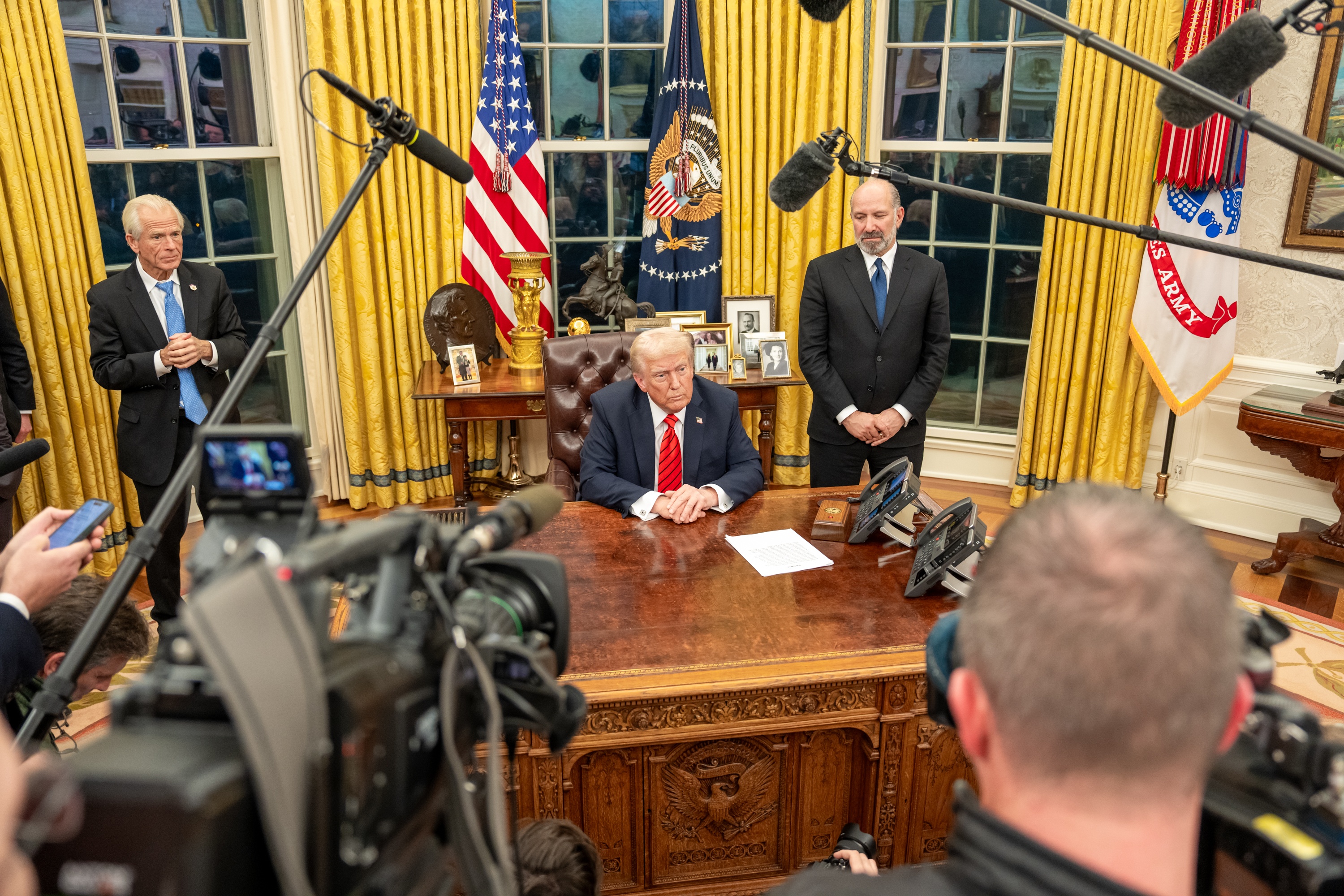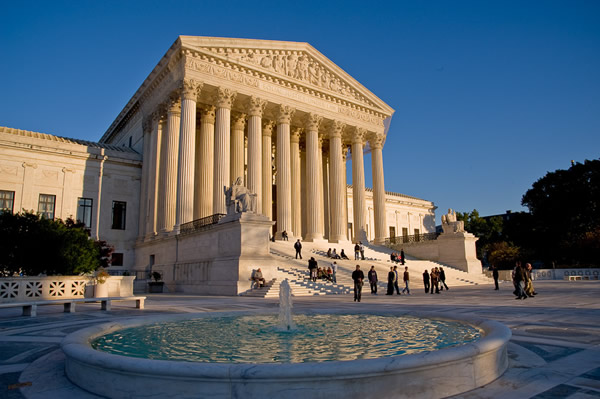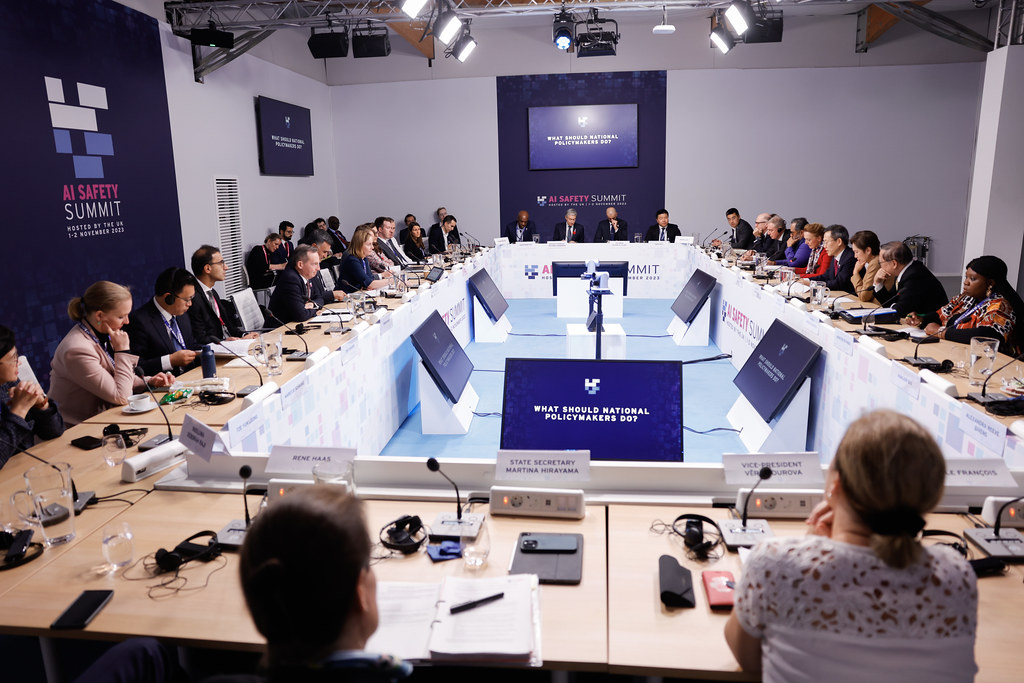Today's Headlines and Commentary
A D.C. federal district court judge ruled yesterday in United States v. Abu Khatallah denying defendant Ahmed Abu Khattalah’s motion to suppress statements made to interrogators after he had waived his Miranda rights, The New York Times reports. Khattalah is the suspected principal coordinator of the September 11, 2012 attack on the U.S. consulate in Benghazi, Libya.
Published by The Lawfare Institute
in Cooperation With

A D.C. federal district court judge ruled yesterday in United States v. Abu Khatallah denying defendant Ahmed Abu Khattalah’s motion to suppress statements made to interrogators after he had waived his Miranda rights, The New York Times reports. Khattalah is the suspected principal coordinator of the September 11, 2012 attack on the U.S. consulate in Benghazi, Libya. Captured in 2014, he was transported to the U.S. over 13 days on a U.S. Navy ship. During the first five days, investigators questioned Khattalah without first advising him of his Miranda rights. A second team of investigators subsequently advised Khattalah of those rights, which Khattalah waived. In a 59-page decision on Wednesday, Judge Christopher Cooper declined to suppress on prompt-presentment grounds, finding that the government’s transfer of Khattalah by ship was “reasonable, and not motivated by a desire to prolong his interrogation;” and rejected Khattalah’s claim of involuntary waiving of his Miranda rights, writing that they were “voluntarily given.”
The ACLU and lawyers for two military psychologists who helped develop the CIA’s post-9/11 enhanced interrogation program released a statement announcing a settlement today in Salim et al. v. Mitchell. The ACLU brought suit on behalf of three former detainees, one of whom died while in custody. As contractors for the CIA, former military psychologists Dr. Bruce Jessen and Dr. James Mitchell proposed a suite of enhanced interrogation methods in a 2002 memorandum.
President Trump commended North Korea for appearing to retreat from its threat to launch four missiles into waters near Guam, writing in a tweet Wednesday morning that “Kim Jong Un of North Korea made a very wise and well reasoned decision.”
Also on Wednesday, the U.S. Air Force and Japan Air Self-Defense Force conducted joint drills in the East China Sea, southwest of the Korean peninsula. Reuters reports that the exercise involved two U.S. Air Force B-1B Lancer bombers capable of carrying up to 75,000 pounds, the largest payload of any U.S. bomber, along with two Japanese F-15 fighter jets. The U.S. planes have recently engaged in several training missions in East Asia, most recently with Japan and South Korea in late July following the North’s second ICBM test on July 28.
Saudi Arabia announced Wednesday that it would reopen the Arar border crossing with Iraq, which has been closed since 1990 when the two countries broke ties following Iraq’s invasion of Kuwait. The development fits within a broader campaign by Saudi Arabia and the United Arab Emirates to improve relations with Iraq to stem Iran’s growing regional influence. On Monday, the Saudi cabinet declared its intent to establish a joint trade commission with Iraq. Meanwhile, on July 31 and August 13, Saudi Arabia and the UAE hosted the influential Iraqi Shia cleric Muqtada al-Sadar for meetings that Reuters says reflected the interests of both parties. While the Sunni Gulf states seek to win the favor of Iraqi Shiite leaders, al-Sadr aims to “play the Saudis off against the Iranians,” with the objective of securing a formal leadership post. Saudi Arabia’s rapprochement efforts extend back to 2015 when it reopened its embassy in Baghdad after a 25-year closure.
The FBI reopened a Freedom of Information Act request submitted by the conservative American Center for Law and Justice for records related to the June 2016 meeting between then-Attorney General Loretta Lynch and President Bill Clinton on an airport tarmac in Phoenix. In an August 10 letter, the FBI advised Jay Sekulow, ACLJ chief counsel and personal lawyer to President Trump, that the bureau had found records “potentially responsive” to the request. The FBI had previously advised the ACLJ that it had located no responsive records in a letter dated October 16, 2016. The FBI’s letter to Sekulow is available here.
On Wednesday, Sierra Leone began mass burials of victims of Monday’s mudslides that devastated the Regents district on the outskirts of the capital Freetown, CNN reports. At least 400 bodies have been recovered, with an estimated 600 people still unaccounted for. Concern about the spread of infectious disease accelerated the pace of burials and prompted officials to proceed with burying victims in mass graves on Wednesday and Thursday. In addition to the dead, the mudslides displaced between 2,000 and 3,000 people, largely affecting the city’s poor residents whose homes were dislodged or buried by the mudslide.
Kenyan opposition leader Raila Odinga, who lost to incumbent Uhuru Kenyatta in the August 8 presidential vote, announced on Wednesday that he would submit his allegations of electoral fraud to the country’s Supreme Court. Odinga claims that the vote was manipulated in Kenyatta’s favor, an allegation that conflicts with the reports of international observers, who have found no evidence of manipulation. On Wednesday, Odinga declared that the Kenyan electoral commission had committed fraud greater than in “any democratic election, anywhere in the world.” The commission has yet to publish the official election results online, feeding suspicion among Odinga and his supporters that the commission was concealing information. Since the results were announced last Friday, at least 24 people have been killed in clashes between protesters and security forces.
ICYMI: Yesterday, on Lawfare
Robert Chesney and Steve Vladeck posted the latest episode of the National Security Law Podcast, entitled “We Were Not Mirandized Until Halfway Through This Podcast,” in which they discussed legal questions related to the recent violent clashes in Charlottesville; the July 12 search warrant issued by a D.C. Superior Court judge to the website hosting platform, Dreamhost; and the Abu Khatallah ruling.
Herb Lin assessed the unfolding “going dark” debate in Australia, arguing that the two sides have conceived of the trade-off between the “laws of mathematics” and the “laws of nations” in different terms.
Susan Landau highlighted an amicus brief filed on Monday in the Supreme Court case of Timothy Ivory Carpenter v. United States, which argued that the government should be required to obtain a search warrant before securing location information from service providers.
Paul Gewirtz and Joe Onek argued that securing China’s cooperation in reining in North Korea’s nuclear ambitions will require the U.S. to uniformly assure Beijing that it does not seek regime change in the North.
John Bellinger urged collective reflection on how to encourage Trump administration officials to pursue sound national security decisions.
Email the Roundup Team noteworthy law and security-related articles to include, and follow us on Twitter and Facebook for additional commentary on these issues. Sign up to receive Lawfare in your inbox. Visit our Events Calendar to learn about upcoming national security events, and check out relevant job openings on our Job Board.





